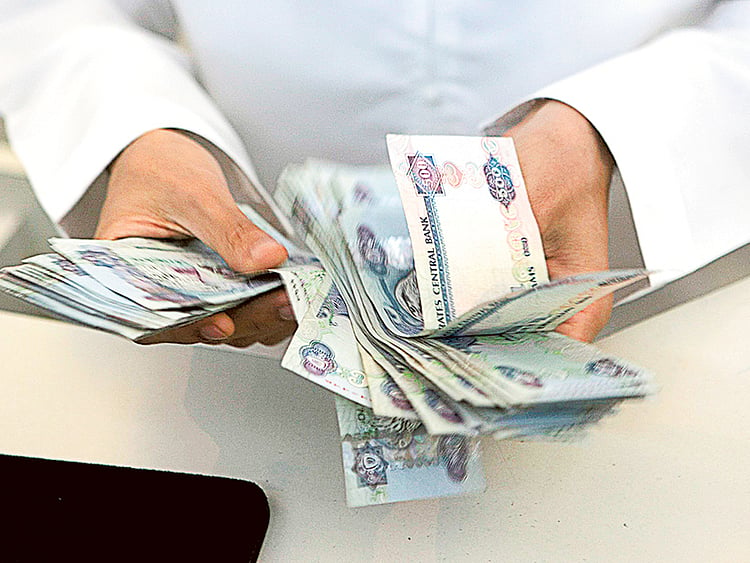UAE stimulus will limit banks’ asset quality dip
Central Bank has allowed banks to free up $13.6b in additional lending

Dubai: A host of fiscal and monetary support schemes announced by the UAE government and Central Bank to support the economy in the context of the coronavirus outbreak could soften the impact on the economy and the banking sector, according to Moody’s.
“The measures, effective upon announcement, will limit UAE banks’ likely material asset quality deterioration from the coronavirus outbreak,” said Mik Kabeya, an analyst at the credit rating agency. “The support scheme provides funding for banks to grant relief from principal and interest payments for up to six months on loans to all private sector and retail borrowers economically affected by the coronavirus.”
On March 14, the Central Bank announced a Dh100 billion ($27.2 billion) “Targeted Economic Support Scheme” and other measures to reduce the economic effects of the coronavirus pandemic.
Eased capital rules
The central bank’s targeted scheme includes $13.6 billion of funding from which banks can draw collateralized funds at 0 per cent interest rate. According to Moody’s, the scheme reduces domestic systematically important banks’ buffers (D-SIB) as well as banks’ capital conservation buffer (CCB), which will free up an additional $13.6 billion in banks’ lending capacity.
The overall scheme equates to 6.4 per cent of UAE banks’ domestic credit as of January. “Although we still expect UAE banks’ asset quality to materially deteriorate amid the current difficult environment, the support scheme will mitigate the extent of the deterioration by keeping some borrowers’ liquidity issues from becoming solvency issues,” said Kabeya.
Deteriorating asset quality
Moody’s analysts believe, the new $13.6 billion funding scheme will not mute significant asset quality challenges, particularly should the pandemic be persistent. However, the funding scheme is expected to support banks’ liquidity by providing cheap funding to meet cash calls from affected borrowers.
Greater flexibility
Although the central bank’s $13.6 billion reduction in CCB and D-SIB buffers is seen credit negative by Moody’s, analysts said the lower regulatory buffers give banks greater flexibility to support borrowers facing temporary liquidity issues. Despite the lowered capital buffer requirements, UAE banks’ regulatory capital requirements remain high.
Non-oil sectors
Moody’s expect the coronavirus to affect the UAE’s key non-oil sectors of tourism, transportation, trade and real estate, which is likely to result in a broad-based shock to the economy. Travel bans and curtailment of nonessential travel to and from affected areas is negatively affecting tourism, hospitality and transportation.
Trade is also exposed because the UAE is a global trade hub and China is its largest non-oil trading partner. “Sectors that rely on investor sentiment, such as real estate and construction, would be materially affected should the pandemic and extreme measures to curtail it persist,” Moody’s said.
“We expect borrowers in the tourism, transportation, trade and real estate sectors to be the most affected, and small and medium enterprises (SMEs) to be particularly vulnerable to economic shocks.”
Analysts said the asset quality deterioration of the UAE bank that they expect from the coronavirus outbreak will exacerbate preexisting asset quality deterioration from slowing global trade, low oil prices, a strong local currency and geopolitical tensions. Substantial ongoing restructuring of corporate debt is likely to limit reported problem loans but will increase potential problem loan formation.
What changes on capital adequacy
The current capital adequacy requirements mandate UAE banks must have a minimum 11 per cent Tier 1 capital ratio, including a 7 per cent minimum CET1 capital ratio, 150 basis point (bp) maximum in Additional Tier 1 (AT1) capital and a 250 bp CCB in the form of CET1 capital. The Targeted Economic Support Scheme allows banks to reduce their CCB by up to 60 per cent. In addition, D-SIB banks (previously required to hold an extra 50 to150 bp in CET1 capital) can use their entire D-SIB buffer as part of the scheme.
Network Links
GN StoreDownload our app
© Al Nisr Publishing LLC 2026. All rights reserved.